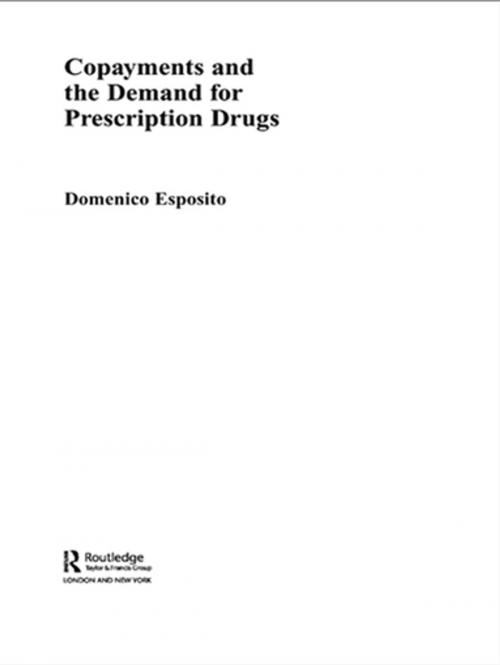| Author: | Domenico Esposito | ISBN: | 9781135992125 |
| Publisher: | Taylor and Francis | Publication: | April 18, 2006 |
| Imprint: | Routledge | Language: | English |
| Author: | Domenico Esposito |
| ISBN: | 9781135992125 |
| Publisher: | Taylor and Francis |
| Publication: | April 18, 2006 |
| Imprint: | Routledge |
| Language: | English |
Increasing prescription drug cost-sharing by patients - in the form of increasing copayments - is one of the most striking, and controversial, developments in the health sector over recent years. The exact nature and use of copayments by health care insurers continues to be hot topic of debate.
This detailed and meticulously researched study is one of the first of its kind: its results suggest that differences in copayments influence choice, shifting market share for these drugs. Differential copayments for medically equivalent alternatives is one strategy insurers use to affect the choice of one drug over another when faced with differing prices. Relative copayments for therapeutically equivalent drugs, imposed by insurers, are shown to have a significant impact on consumer choice – the implication being that physicians are acting in patients’ financial, as well as medical interest.
Unlike much work in this area, Copayments and the Demand for Prescription Drugs is not sponsored by any drug company; and its up-to-date results, established on a firm scientific basis, are entirely unbiased. Its results have applications for the private insurance and pharmaceutical sectors as well as the public sector, and it will be of great interest to professionals and researchers in the fields of health economics, economic and healthcare policy-making, and microeconomics: its primary findings are especially critical to the United States public health sector which is on the cusp of providing a prescription drug benefit to nearly forty million elderly Americans.
Increasing prescription drug cost-sharing by patients - in the form of increasing copayments - is one of the most striking, and controversial, developments in the health sector over recent years. The exact nature and use of copayments by health care insurers continues to be hot topic of debate.
This detailed and meticulously researched study is one of the first of its kind: its results suggest that differences in copayments influence choice, shifting market share for these drugs. Differential copayments for medically equivalent alternatives is one strategy insurers use to affect the choice of one drug over another when faced with differing prices. Relative copayments for therapeutically equivalent drugs, imposed by insurers, are shown to have a significant impact on consumer choice – the implication being that physicians are acting in patients’ financial, as well as medical interest.
Unlike much work in this area, Copayments and the Demand for Prescription Drugs is not sponsored by any drug company; and its up-to-date results, established on a firm scientific basis, are entirely unbiased. Its results have applications for the private insurance and pharmaceutical sectors as well as the public sector, and it will be of great interest to professionals and researchers in the fields of health economics, economic and healthcare policy-making, and microeconomics: its primary findings are especially critical to the United States public health sector which is on the cusp of providing a prescription drug benefit to nearly forty million elderly Americans.















